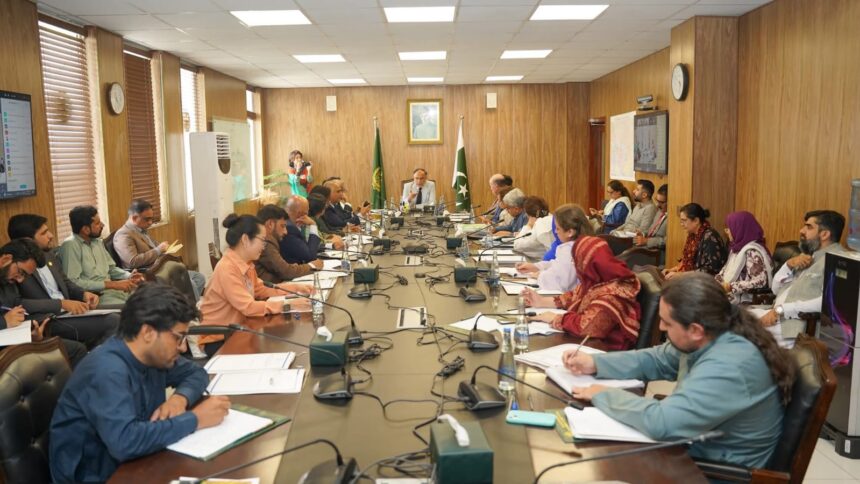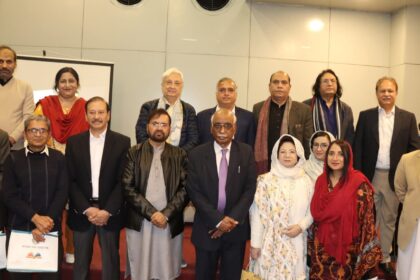Pakistan Declares Population Growth a National Emergency, Plans Urgent Measures
Pakistan has declared its rapidly increasing population growth rate of 2.55 percent per annum as a “national emergency,” forecasting that the country’s population is expected to surpass 386 million by 2050. To tackle this imminent crisis, Federal Minister for Planning, Development, and Special Initiatives, Professor Ahsan Iqbal, announced critical steps, including the establishment of a high-level “National Population Commission.”
Chairing a high-level meeting convened on the instructions of Prime Minister Shehbaz Sharif, Minister Ahsan Iqbal cited alarming findings from the latest 2023 Digital Census. Since 2017 alone, Pakistan’s population has increased by approximately 33.82 million people, highlighting the severity of this demographic challenge.
According to data presented during the meeting, several worrying social indicators underline the gravity of the situation. For instance, 40 percent of the nation’s population has never attended school, reflecting critical gaps in education provision. Moreover, only 25 percent of women participate in the labour force, indicating severe underutilization of human capital. Additionally, health-related issues remain pressing: according to a UNICEF report, every hour, 30 newborn babies lose their lives, and every 50 minutes, a mother suffers the loss of her child.
Responding decisively, Minister Ahsan Iqbal recommended establishing a “National Population Commission” chaired by Prime Minister Shehbaz Sharif, which will include Chief Ministers from all four provinces. This empowered commission will be responsible for coordinating efforts, implementing measurable targets, and ensuring effective management of Pakistan’s demographic trajectory.
The Ministry of Planning identified significant obstacles hindering population control efforts. A major issue raised was the current NFC (National Finance Commission) award formula, which unintentionally incentivizes provinces for higher population growth by providing larger financial shares based on population size. This practice directly undermines national efforts to achieve population stabilization.
To address these roadblocks, the proposed commission will review and reformulate financial mechanisms and policy incentives. Additionally, targeted awareness campaigns aimed at rural women will be initiated through utility stores, basic health centers, and local markets. Minister Iqbal also announced extensive awareness campaigns on social media, involving religious leaders, community health workers, and digital platforms, to foster open dialogues on sensitive issues and rebuild public trust.
Highlighting the multi-dimensional nature of Pakistan’s population crisis, Minister Ahsan Iqbal emphasized, “This population issue isn’t merely a health concern—it directly impacts education, employment, and economic stability. Immediate and coordinated action is essential for sustainable development.”
The meeting was attended by prominent figures, including Federal Minister of Health Mustafa Kamal, Minister of Religious Affairs Sardar Muhammad Yousaf, Minister for Information Attaullah Tarar, Senator Rubina Khalid, Chairperson BISP, Senator Sherry Rehman, and representatives from international institutions such as UNFPA, WHO, UNICEF, provincial officials, and experts from the Population Council and Planning Commission.











